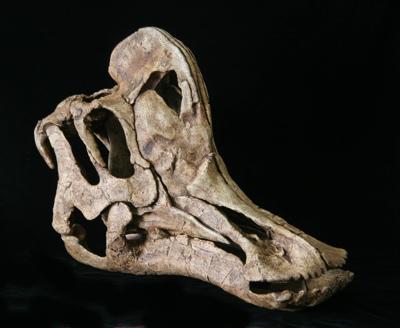University of Utah paleontologists this morning announced the discovery of a new dinosaur species, a creature with a duck-like bill and a hatchet-shaped head. This development stems from the discovery of a 72 million-year-old specimen, in the early 1990s in the northcentral Mexican state of Coahuila.
The discovery helps reveal what Mexico was like in the Late Cretaceous period, according to Terry Gates, a paleontologist with the Utah Museum of Natural History.
While this era is the best-understood period of the age of dinosaurs, Mesoamerica has remained a mystery because much of this region was covered by a shallow sea and land-roaming dinosaurs of this time were largely confined to narrow spit of western America known as Laramidia.
The new creature, dubbed Velafrons coahuilensis, belonging to a family of duck-billed dinosaurs called hadrosaurs, is one of the first Mexican dinosaurs to be named. The species was first identified in the December edition of the Journal of Vertebrate Paleontology by a multinational team that includes Utah state paleontologist James Kirkland, U. paleontologist Scott Sampson and scientists from Museo del Desierto in Saltillo, Coahila and the Royal Tyreell Museum in Alberta.
"Now that we've cracked open this amazing window into the world of dinosaurs, we look forward to future expeditions that will undoubtedly reveal more of Mexico's ancient past," Sampson said.
Gates explained that Velafrons represents the first occurrence of a crested duck-billed dinosaur in this region of North America. "The crested duck-billed dinosaurs are an extraordinary example of vertebrate evolution," he said. Unlike other animals where the nose bone lies in front of their eyes, these dinosaurs transformed their skulls so that the nose rested atop their skull. The snout extended backward, up their face, in order to fill the gap left by the relocated nose bone.
By Brian Maffly
The Salt Lake Tribune
Published: February 12, 2008





